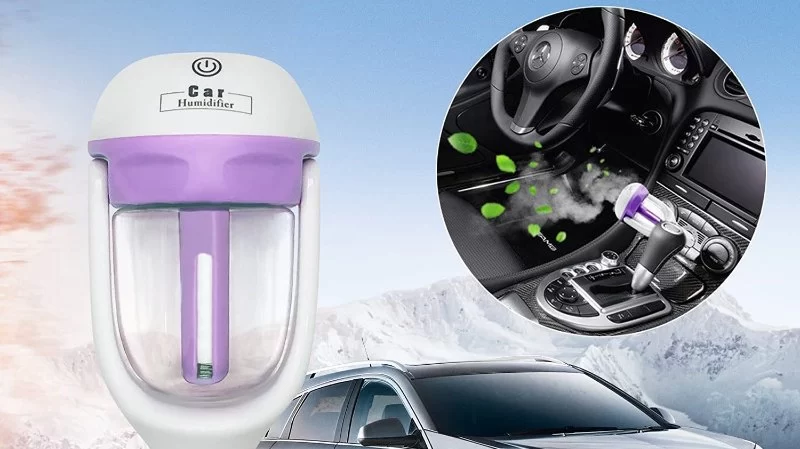- understanding-why-safety-matters-in-car-air-fresheners
- common-ingredients-to-avoid-in-car-fresheners
- safe-and-natural-alternatives-for-families
- performance-vs-safety-balancing-effectiveness
- customer-stories-why-parents-and-pet-owners-choose-safe-options
- where-to-find-quality-safe-car-fresheners
1. Understanding Why Safety Matters in Car Air Fresheners
Many people love the fresh scent of a newly cleaned car, but what’s often overlooked is the chemical content behind that fragrance. For families with children or pets, these seemingly harmless fresheners could introduce harmful airborne toxins into a small, enclosed space. Ingredients like phthalates, formaldehyde, and synthetic musks have been found in some commercial air fresheners and are known to contribute to respiratory irritation and hormone disruption.
Small children are especially vulnerable due to their developing lungs, and pets like dogs and cats are closer to vents and surfaces where these chemicals may settle. That’s why more parents and pet owners are searching for the best air fresheners for cars that are kid-safe and pet-friendly. It’s not just about a pleasant scent—it’s about clean, breathable air for everyone inside the vehicle.
2. Common Ingredients to Avoid in Car Fresheners
When evaluating car air fresheners, it’s essential to scan ingredient labels or product descriptions for red flags. Here are a few you should steer clear of:
Phthalates – Often used to prolong the scent, phthalates are linked to hormone disruption and have been banned in certain children's products.
Volatile Organic Compounds (VOCs) – These include benzene, toluene, and xylene, which contribute to poor indoor air quality and can cause headaches and nausea.
Artificial Fragrances – Since manufacturers aren’t required to list what makes up "fragrance" on labels, it can be a cocktail of unknown chemicals.
A 2020 study by the Environmental Working Group found that over 70% of popular air freshener brands contained one or more potentially hazardous chemicals not disclosed on the packaging. Choosing safer products is a proactive step toward protecting your family’s health.
3. Safe and Natural Alternatives for Families
Fortunately, several non-toxic options offer a great scent without compromising safety. Look for air fresheners that use plant-based essential oils, baking soda, or activated charcoal as the primary ingredients. These natural components neutralize odors instead of masking them, and many come without synthetic carriers or fixatives.
For example, a lavender and lemon essential oil diffuser clip not only smells fresh but can also have calming effects—ideal for long road trips with kids. Bamboo charcoal bags are another excellent option, especially for pet owners. They absorb odors rather than emit fragrances, making them ideal for sensitive noses.
Brands featured on platforms like Scent Snob have been vetted for ingredient transparency and safety, offering peace of mind for concerned families.
4. Performance vs. Safety: Balancing Effectiveness
One common concern is whether safe air fresheners actually work. The truth is, many natural options are just as effective, though they may take a bit longer to show results. For instance, citrus-based sprays made with essential oils can refresh a car in seconds, while activated charcoal options may take a few hours to fully neutralize stubborn smells.
Performance also depends on usage patterns. A safe product placed near the AC vent can provide faster diffusion, while a rear-seat pouch may take longer to impact the cabin. Users should consider their car size, ventilation habits, and the types of odors they’re targeting—whether it’s gym gear, wet dog, or spilled coffee.
The key is consistency. Unlike synthetic sprays that overload your nose and fade quickly, natural fresheners work best when replaced regularly and combined with good hygiene practices like vacuuming and window ventilation.
5. Customer Stories: Why Parents and Pet Owners Choose Safe Options
Laura, a mom of two from Austin, shares her story: “After my daughter developed a persistent cough, our pediatrician suggested we stop using commercial car sprays. We switched to a vanilla-mint essential oil clip, and the cough disappeared within two weeks.” Similarly, Mike and Joanna from Seattle, pet parents to two rescue dogs, noted that one of their dogs became agitated every time they used a plug-in car freshener. Switching to unscented charcoal pouches made all the difference.
These real-life testimonials reveal an increasing awareness among parents and pet lovers. They aren’t just looking for great-smelling cars—they’re seeking holistic safety. Choosing the best air fresheners for cars that are safe for kids and pets is a thoughtful investment in long-term well-being.
6. Where to Find Quality Safe Car Fresheners
As consumer awareness grows, so does the availability of safe air fresheners. Online platforms like Scent Snob curate collections that are free from toxins and tested for family safety. From aromatherapy blends to minimalist charcoal inserts, the options are growing more stylish, more effective, and more health-conscious.
Local organic stores, eco-boutiques, and some chain supermarkets also carry family-safe options. Look for packaging that explicitly states “phthalate-free,” “non-toxic,” “safe for children and pets,” or “made with essential oils.” Even better if the product comes with certifications from organizations like the Environmental Working Group (EWG) or USDA Organic.
Choosing well-reviewed, research-backed products not only helps you keep your car smelling fresh but ensures that every ride supports the health of your loved ones—two-legged and four-legged alike.


0 comments